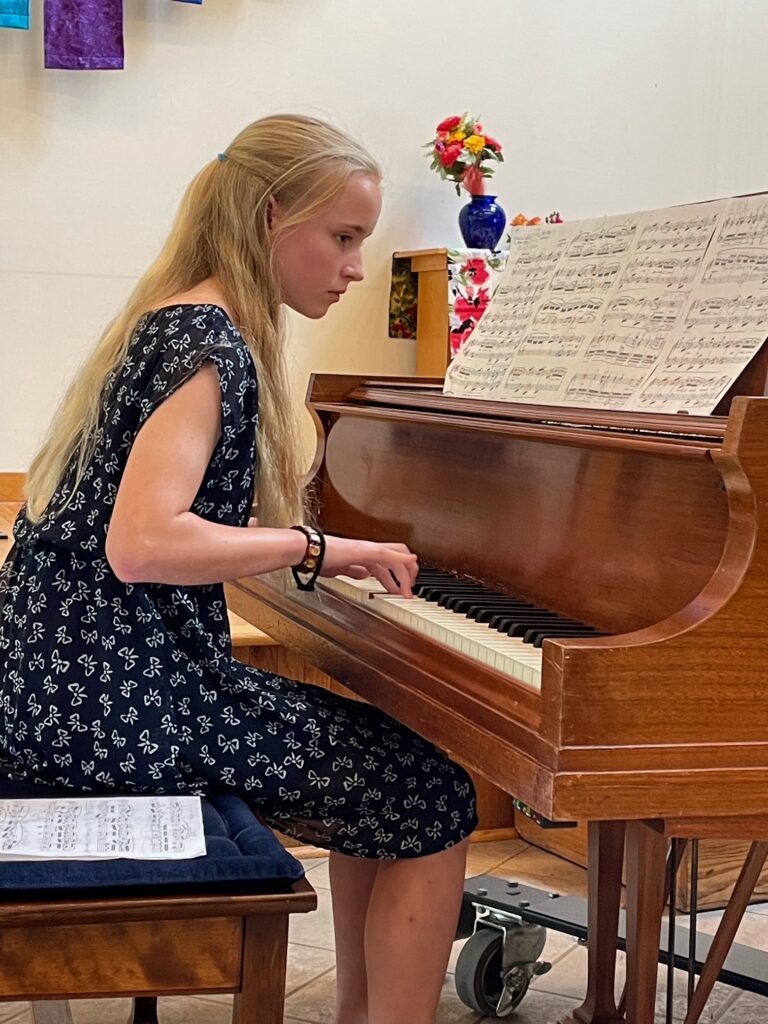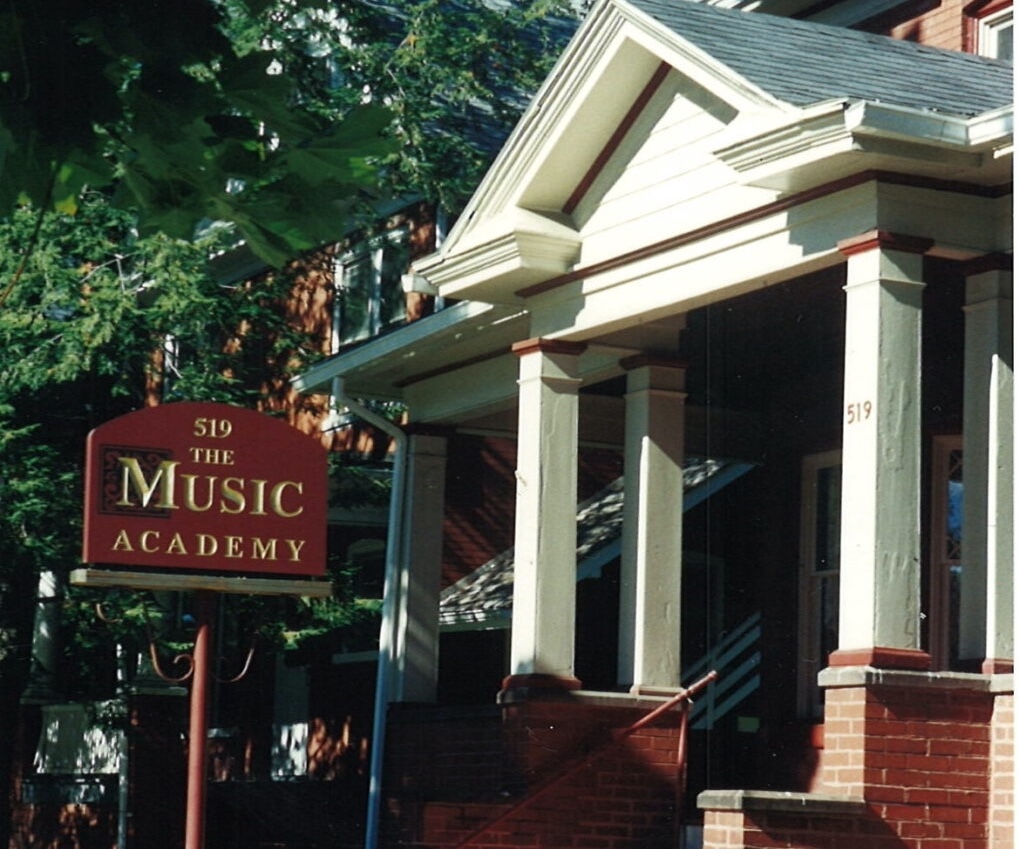This story originally appeared in the August 2024 edition of Town&Gown magazine.
The Music Academy in State College is celebrating 60 years of music instruction for students of all ages and abilities.
In 1963, piano teachers Cynthia “Cinny” Schein and Betty Trachtenberg decided to open The Music Academy, the first community music school in State College.
When the school was chartered as a nonprofit on Aug. 17, 1964, it had 60 students and six instructors who taught piano, voice and violin, says the current executive director, Caroline Stahl. “Today you can choose from more than 20 disciplines at TMA—piano, voice, guitar, as well as strings, brass, winds and percussion instruments.”
TMA has grown to 18 faculty and 150 students, Stahl says. Faculty are required to have a minimum of a bachelor’s degree in music, and many have master’s and doctorate-level degrees.
The school welcomes infants through age 10 into the Musikgarten Program. Children can take Suzuki Method violin and cello lessons. Traditional lessons are open to children and adults.
Stahl says the oldest TMA student, Myrtle “Bunny” Moon, had taken piano lessons elsewhere in the past but got her “real start” at age 68, studying with Arthur Goldstein. She continued until she was 92.
Joanne Rutkowski, TMA board president, says the Suzuki Method is an approach that “is typically used with younger students and aligns closely with how we learn language—hearing then playing. Music reading is taught much later. There is a lot of parent involvement—parents attend the lessons. Students also attend a group class with others on the same instrument.”
“We have photos of Suzuki being taught in the early ’80s,” Stahl says, noting that in 2018 the State College Suzuki Program merged with TMA.
“The group classes provide many benefits,” says Trevor Thompson, music program manager, who teaches traditional and Suzuki violin. “Collaboration, getting to learn together, being able to see other students, also just the joys of having fun and playing pieces together.”
He says studying music teaches life skills—responsibility for taking care of an expensive, fragile instrument, problem-solving skills, time-management skills, collaborating with others and performing in front of people.
“Though some students may want to pursue music professionally, many will find other career paths and passions,” he says. “Our hope is that through taking lessons, they will become lifelong music lovers, to have an appreciation of the arts and to have picked up and gained all of these skills along the way.”

Thompson says performing at recitals is encouraged. “We really try to make it a positive experience for the students. We’ve made it a supportive, safe space for them to get up there and to showcase all that they have worked on during the semester.”
For example, one of his students has been working hard on improving her posture and playing position. He says at her most recent solo recital, it was heartwarming to see her big smile when another violin teacher complimented her on how much her posture had improved.
For the youngest students, the Musikgarten classes are taught by Betha Christopher, the early childhood program coordinator. She taught the classes privately for 12 years, then brought the program to TMA in 2020.
“Musikgarten really wants music to be part of everyday life,” she says. Parents attend the classes with children younger than age five, as well as the last 10 minutes of older children’s classes so parents can learn the activities and use the recorded music to continue singing, focused listening, moving to music and other activities at home together. “Hopefully, music is something that’s happening all week long,” Christopher says.
“Montessori philosophy runs deeply through the program. … And Montessori says follow the child,” she says. “Even if a child is moving around [the room], they are still listening and processing what is happening. … They participate in the way they need to participate.”
She says Musikgarten students learn piano in group classes from ages seven to 10, when their fingers have developed more skill and they are ready to use the keyboard to express the musicality they’ve learned. Some students exit the program early to take Suzuki or traditional private lessons on an instrument.
Notable performing artists who have trained at TMA include pianist Anthony Michael Cornet, founder of a music school in Altoona; flutist Ian Hendrickson-Smith, who performs in The Tonight Show’s band; pianist Liz Grove, who worked in music distribution in New York City and founded Pine Grove Hall; and harpsichordist Vera Kochanowsky, who established two vocal ensembles and a scholarship for school-aged piano students.
Piano student Elliot Chambers received a 2024 Vera Kochanowsky tuition scholarship, saying in her application essay, “For me, playing piano is like reading a book out loud with the piano as your voice. Each note is like a word that, when put together, tells a story. I hope to keep piano playing for the rest of my life.”
Celebrate with the Music Academy
60th-anniversary Open House: Aug. 17
2790 West College Avenue, Suite 7, State College
Fall semester registration begins August 1
scmusicacademy.org
T&G
Karen Dabney is a freelance writer in State College.



